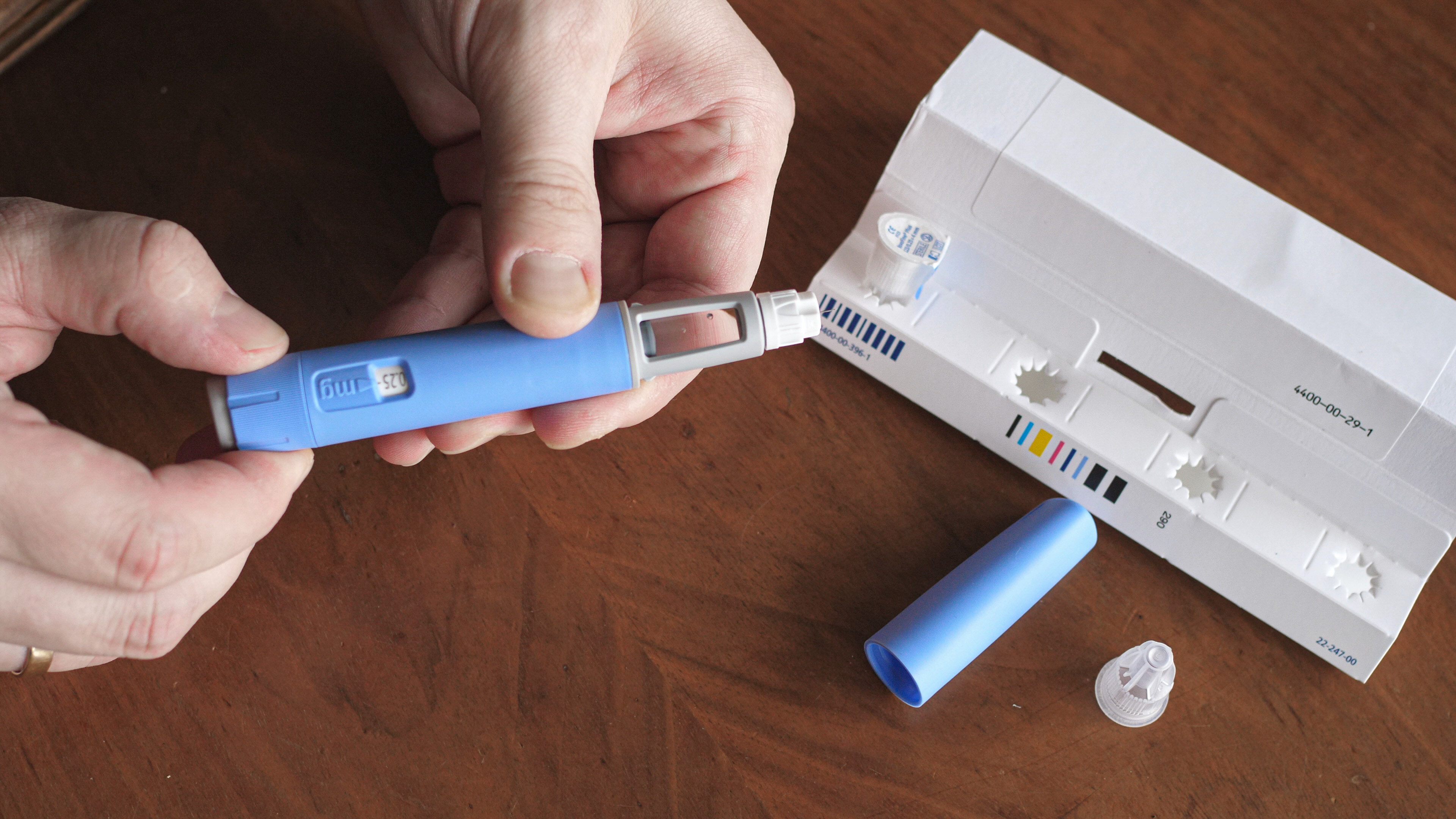Ozempic & Blood Pressure: Cardiovascular Benefits of Ozempic
A look at the heart-healthy benefits of Ozempic
Ozempic (semaglutide) is an injectable medication used to lower blood sugar levels in people with type 2 diabetes. It is also approved to treat chronic kidney disease in diabetic patients. However, it is perhaps even more famous for its off-label use as a weight-loss drug for patients with overweight or obesity who also have weight-related health problems.
Beyond its ability to improve blood sugar management and reduce the risk of severe kidney problems in diabetic patients, studies also show that Ozempic may reduce the risk of heart disease, stroke, and heart attacks. Read on to learn more about the cardiovascular benefits of Ozempic.
Does Ozempic lower blood pressure?
A 2023 review of six studies found that Ozempic significantly reduced blood pressure. These studies were conducted in people with type 2 diabetes and people with obesity who do not have type 2 diabetes. The mean (average) blood pressure of this group was within the normal range. Ultimately, taking Ozempic led to a 5 mmHg reduction in systolic blood pressure and a 2.5 mm Hg reduction in diastolic blood pressure. This effect stayed consistent even at higher doses.
Another review of eight clinical trials involving patients taking either semaglutide or liraglutide (a similar type of medication) found similar results to the 2023 review.
It should be noted that in both studies, the authors do not draw a direct relationship between Ozempic and lowered blood pressure. Weight loss from Ozempic use, along with increased physical activity and reduced salt intake, all contribute to lowered blood pressure.
Its effect on patients with hypertension still needs more research. But, the authors of the review conclude that its effect may be even greater in these people.
Are there other cardiovascular benefits of Ozempic?
The U.S. Food and Drug Administration (FDA) has approved Ozempic to reduce the risk of heart problems (like a heart attack or stroke), or death in patients with type 2 diabetes mellitus (also known as type heart attack, stroke, or death in patients with type 2 diabetes). It is thought to do this primarily by managing blood sugar levels and helping patients lose weight.
How it works
The active ingredient in Ozempic is semaglutide. Semaglutide works by mimicking glucagon-like peptide-1 (GLP-1), a hormone that's produced by the endocrine system whenever you eat food. As a response to your eating, GLP-1 encourages the pancreas to make insulin, another hormone that controls your blood glucose (blood sugar) levels. GLP-1 also signals to the brain that you’re full after eating.
By acting like the GLP-1 hormone, semaglutide helps patients with type 2 diabetes control their blood sugar levels. It also helps patients reduce their body weight by making them feel more full after eating (preventing overeating).
Excess body weight (overweight) and high blood sugar levels increase the risk of high blood pressure, heart disease, and cardiovascular events like a heart attack or stroke. Reducing both body weight and blood sugar levels can reduce the risk of heart problems.
How does weight loss help your heart health?
People with overweight or obesity are at a greater risk of many health problems, including the increased risk of high blood pressure, high cholesterol, and heart disease. Excess body weight makes your heart work harder to pump blood throughout the body.
In addition, too much cholesterol and fatty tissue in the body causes material (known as arterial plaque) to build up in the arteries. This leads to blood vessels narrowing, making it even harder for oxygen-rich blood to flow to and from the heart.
Losing weight helps reverse plaque buildup from the arteries, making it easier for the heart to send blood throughout the body.
According to the American Heart Association, losing even a little bit of weight goes a long way. Cutting your body weight by 5-10% can reduce your risk of weight-related heart problems. For someone who is 200 pounds, that means losing as little as 10 pounds.
Can I get an Ozempic prescription for high blood pressure?
It is not likely that you will be prescribed Ozempic just to lower your blood pressure, since it's not FDA-approved for treating hypertension. Healthcare providers prescribe Ozempic to patients with type 2 diabetes. They also sometimes prescribe it off-label to patients with overweight or obesity who have other weight-related health problems.
If you have type 2 diabetes and high blood pressure, talk to your healthcare provider about Ozempic. If you do not have type 2 diabetes but are overweight or obese, talk to your provider. Ask about weight loss drugs that might be right for you.
- Obesity is defined as: A body mass index—BMI—of 30 kg/m2 or greater)
- Overweight is defined as: A BMI of 27 kg/m2 or greater
These drugs are expensive. Ozempic's list price is around $998 per month, or $349 for those without insurance coverage who pay out of pocket for their prescription.
Additionally, many insurance plans do not cover any part of Ozempic if you do not have type 2 diabetes, meaning you have to pay that entire price out-of-pocket. Because of this, you should discuss alternative options with your healthcare provider to find the best solution for you.
Alternatives to Ozempic include:
Wegovy (semaglutide): Wegovy is made by Novo Nordisk, the same company that makes Ozempic. Wegovy contains a higher dose of semaglutide and is approved to treat weight loss (unlike Ozempic, which is approved to treat diabetes). It comes in the form of a daily pill or a once-weekly injection.
Zepbound (tirzepatide): Zepbound, like Wegovy, is specifically approved as a weight loss medication. It is a more potent form of the type 2 diabetes drug Mounjaro. Zepbound is supplied as a subcutaneous injection pen that is used once a week.
These drugs are only available in their brand-name form. There is no generic version of either drug, and you must have a prescription to get them. Talk to your provider about the benefits and risks of weight loss medication before starting treatment.
Common side effects of Ozempic include:
- Stomach pain
- Nausea
- Diarrhea
- Constipation
Less common but more severe side effects include:
- Pancreatitis (inflammation of the pancreas)
- Low blood sugar (hypoglycemia)
- Vision changes
- Increased risk of thyroid cancer or tumors
- Allergic reactions like skin rash, swelling, breathing difficulties
If you are looking to manage your blood pressure but do not have type 2 diabetes, your provider may recommend a blood pressure medication to manage your condition.
How Sesame can help
If you’re looking to treat high blood pressure, Sesame can help. Talk to a provider online to discuss your concerns and potential treatment options for your condition. Providers on Sesame can answer your questions while offering medical advice, guidance about lifestyle changes, and prescribing medication if appropriate.
Sesame also offers an affordable and comprehensive online weight loss program to help you get started on your weight loss journey. Success by Sesame is a month-to-month subscription that includes a video consultation with a weight loss doctor or specialist of your choice, access to prescriptions for weight loss medication if appropriate, unlimited messaging with your provider, ongoing support, and more.








